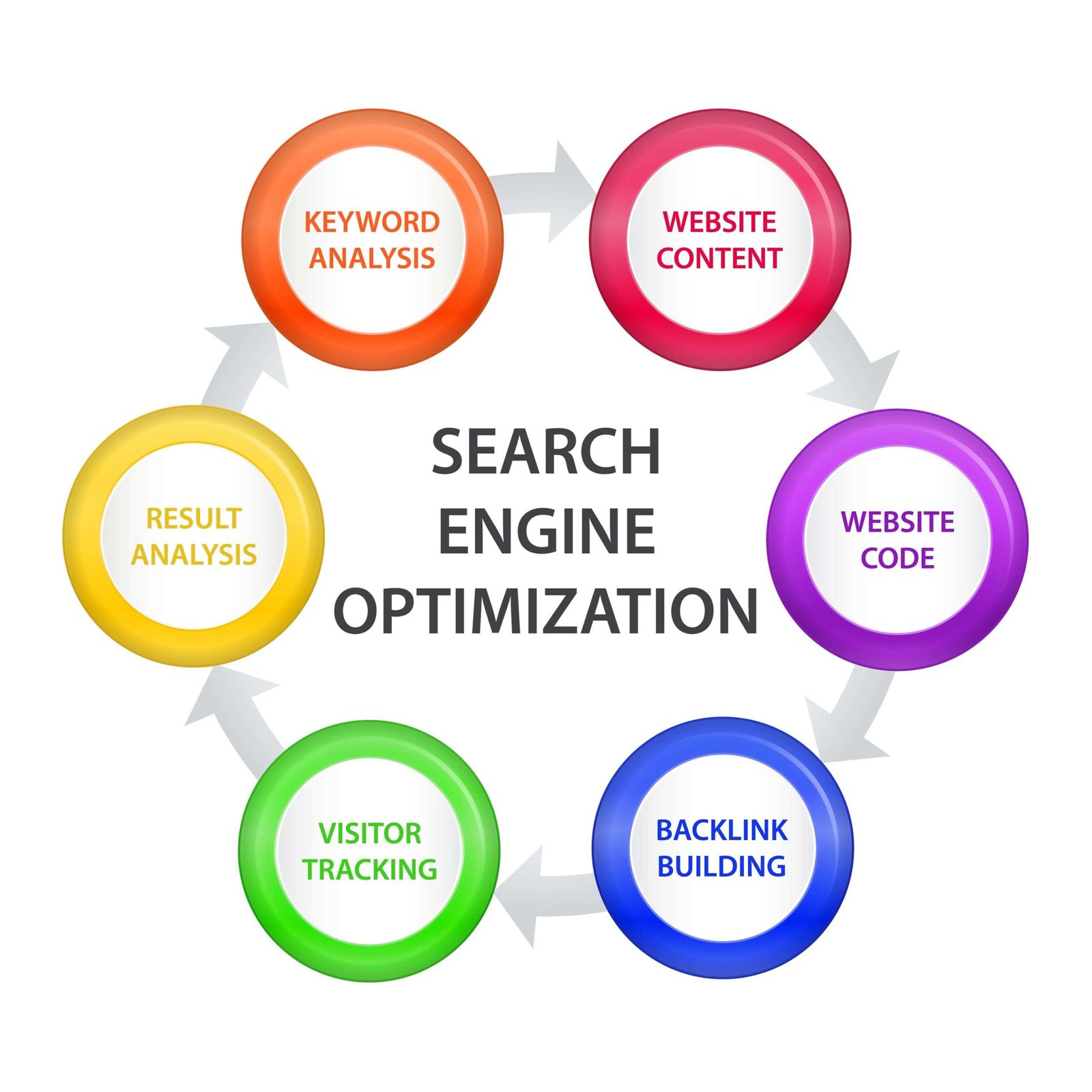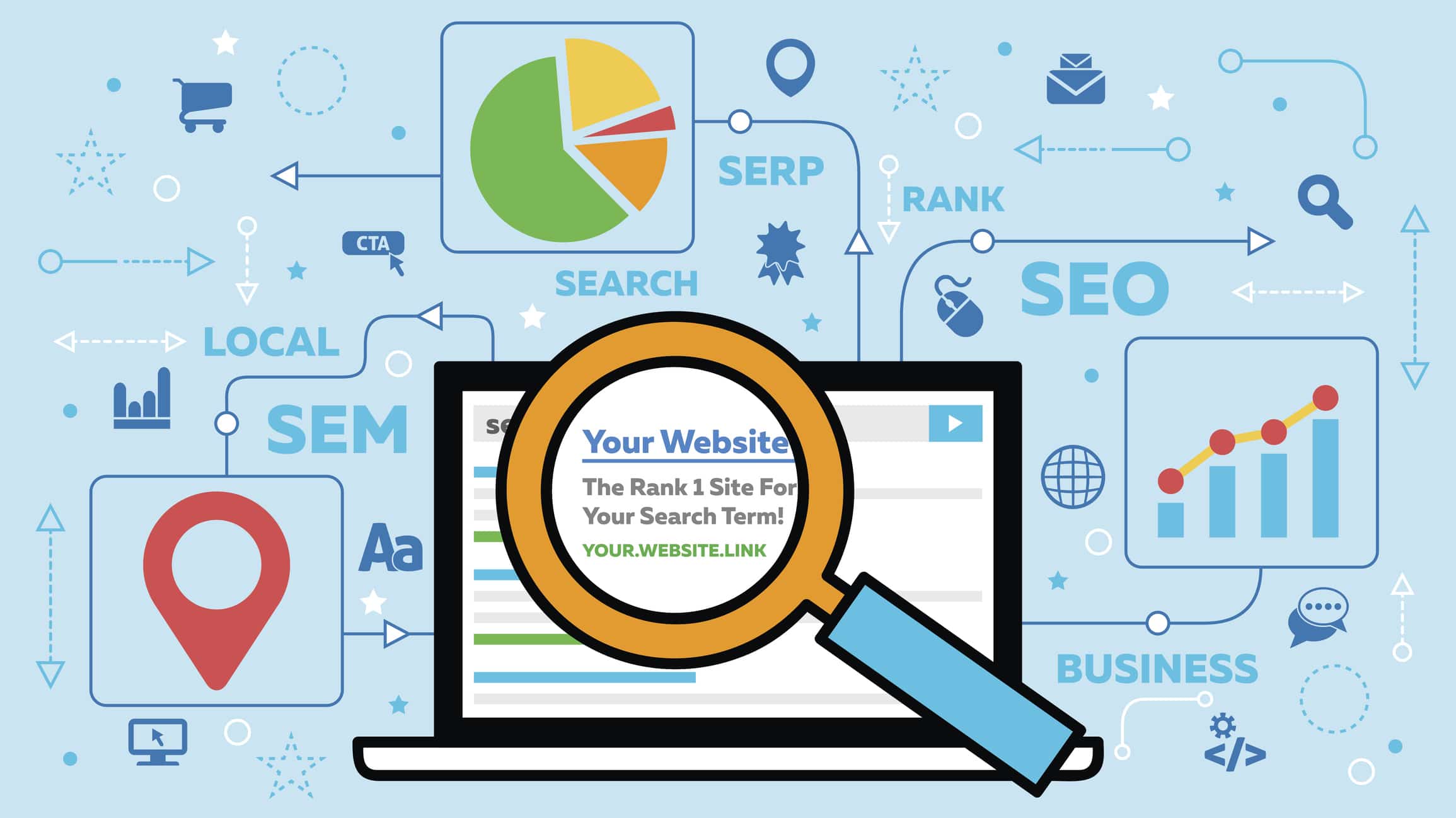Are you curious about how to get your website to the top of search engine results pages (SERPs)? If so, you're in the right place. Optimizing your website for search engines is one of the most important things you can do to increase your visibility and traffic. In this guide, we'll walk you through the steps on how to do it yourself.
Editor's Note: This guide was last updated on March 8, 2023. We update our guides regularly to ensure that they contain the most up-to-date information.
We've done the research and put together this comprehensive guide to help you optimize your website for search engines. So, whether you're a beginner or an experienced SEO pro, read on for some valuable tips.
Key Differences
| On-Page SEO | Off-Page SEO | |
|---|---|---|
| Focus | Optimizing your website's content and structure | Building backlinks and promoting your website |
| Examples | Keyword research, content creation, site structure | Link building, social media marketing, guest posting |
Main Article Topics
- Keyword research
- Content creation
- Site structure
- Link building
- Social media marketing
- Guest posting
By following the steps in this guide, you can improve your website's ranking in search engine results pages and get more traffic to your site.

Optimize images for seo - dopimmo - Source dopimmo.weebly.com
FAQ
This FAQ section provides comprehensive answers to frequently asked questions and addresses common concerns regarding website optimization for search engines.
Question 1: What are the most important factors considered by search engines when ranking websites?
Search engines prioritize websites that demonstrate relevance, authority, and technical proficiency. Relevance refers to the alignment of a website's content with user search queries. Authority encompasses factors such as backlinks from reputable sources and positive user reviews. Technical proficiency ensures a website's accessibility, speed, and mobile-friendliness.

Online Search Engine Optimization - Source mechanicdbslappers.z21.web.core.windows.net
Question 2: How can I improve my website's content for better search engine visibility?
Effective website content should be informative, engaging, and optimized for relevant keywords. Utilize header tags (H1, H2, etc.) to structure your content and include targeted keywords in a natural and meaningful way. Ensure that your content is unique, original, and provides value to users.
Question 6: Are there any additional resources available to guide me in optimizing my website?
Numerous resources exist to assist in website optimization. How To Optimize Your Website For Search Engines: A Step-by-Step Guide offers a comprehensive guide covering the entire optimization process. Additionally, search engine providers like Google and Bing provide extensive documentation and tools to help website owners enhance their visibility.
By addressing these common concerns and misconceptions, this FAQ section aims to empower website owners with a solid understanding of the key principles involved in search engine optimization. By applying these insights, websites can improve their rankings, enhance their visibility, and effectively reach their target audience.
Moving on to the next section, we will delve deeper into the strategies and techniques used to optimize websites for search engines.
Tips to Optimize Your Website for Search Engines
Optimize your website for search engines (SEO) is crucial for increasing visibility, attracting organic traffic, and boosting your online presence. Follow these tips to enhance your SEO performance:
Tip 1: Craft High-Quality Content
Create compelling, informative, and engaging content relevant to your target audience. Include keywords throughout your content naturally.
Tip 2: Optimize Page Titles and Meta Descriptions
Write concise, keyword-rich page titles and meta descriptions. Ensure they accurately reflect the content of the page and entice users to click.
Tip 3: Use Header Tags (H1, H2, etc.)
Structure your content using header tags to highlight important sections, improve readability, and help search engines understand the hierarchy of your page.
Tip 4: Optimize Images
Use descriptive file names, alt tags, and optimize images for quick loading to enhance user experience and image search visibility.
Tip 5: Build High-Quality Backlinks
Acquire backlinks from reputable websites to signal authority and trust to search engines, boosting your website's credibility.
Tip 6: Monitor and Analyze Results
Use analytics tools to track your SEO performance, identify areas for improvement, and adjust your strategy accordingly.
Tip 7: Stay Updated with SEO Trends
Search engine algorithms are constantly evolving. Keep up with the latest SEO best practices and trends to ensure your website remains competitive.
These tips provide a solid foundation for optimizing your website for search engines. By implementing them effectively, you can improve your visibility, attract more organic traffic, and drive success for your online presence.
How To Optimize Your Website For Search Engines: A Step-by-Step Guide
Optimizing your website for search engines is crucial for increasing its visibility and driving organic traffic. Here are six key aspects to consider:
- Keyword Research: Identify relevant keywords that your target audience searches for.
- Content Optimization: Create high-quality, informative content that incorporates keywords naturally.
- Technical SEO: Ensure your website is technically sound with proper site structure, page speed, and mobile optimization.
- On-Page Optimization: Optimize title tags, meta descriptions, and header tags to align with targeted keywords.
- Link Building: Acquire high-quality backlinks from reputable websites to enhance your website's authority.
- Analytics and Tracking: Implement analytics to track website performance, identify areas for improvement, and adjust your SEO strategy accordingly.
These aspects are interconnected and contribute to a comprehensive SEO strategy. By addressing each of these key areas, you can improve your website's visibility, attract more organic traffic, and ultimately achieve your business goals.

How to Optimize Your Business Website for Search Engines - Source blog.socialpill.in
How To Optimize Your Website For Search Engines: A Step-by-Step Guide
Website optimization for search engines is crucial for increasing visibility, traffic, and conversions. This guide provides a comprehensive approach to optimizing websites for enhanced search engine rankings.
Content plays a central role in search engine optimization. Relevant, high-quality content optimizes websites for user intent, satisfying search engine algorithms' demand for informative and engaging content. By aligning content with target keywords and search queries, websites enhance their visibility for relevant searches, leading to increased organic traffic and potential customers.

A Complete Guide to Optimizing Content for Search Engines - Source www.abstraktmg.com
Practical examples of content optimization include creating informative blog posts, optimizing product descriptions for e-commerce websites, and developing landing pages that target specific keywords. By tailoring content to users' search intent, websites can significantly improve their search engine rankings and achieve their desired goals.
Understanding the connection between content optimization and search engine rankings is essential for businesses to succeed in the digital landscape. By implementing the strategies outlined in this guide, websites can leverage content to boost their visibility and reach their target audience effectively.
| Content Optimization Strategy | Impact on Search Engine Rankings |
|---|---|
| Keyword Research | Identifies relevant keywords to target, improving visibility for specific searches. |
| On-Page Optimization | Optimizes page titles, meta descriptions, and headings for search engines. |
| Content Quality | Creates valuable, informative content that satisfies user intent and boosts rankings. |
| Backlinks | Acquiring high-quality backlinks from reputable websites enhances credibility and improves rankings. |
| Content Updates | Regularly updating content keeps it fresh and relevant for search engines, ensuring ongoing visibility. |
Conclusion
By optimizing website content for search engines, businesses can significantly improve their visibility, attract more organic traffic, and achieve their desired online goals. Understanding the crucial role of content in search engine rankings is essential for success in the digital age.
Continuous content optimization and staying abreast of SEO best practices are vital for maintaining high search engine rankings. By leveraging the strategies outlined in this guide, websites can harness the power of content to drive traffic, generate leads, and grow their online presence.
EmoticonEmoticon